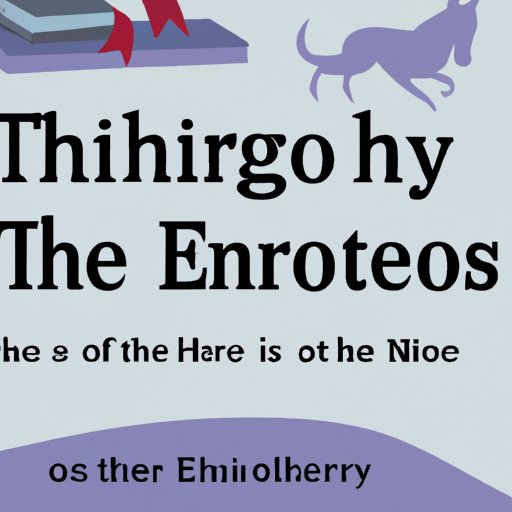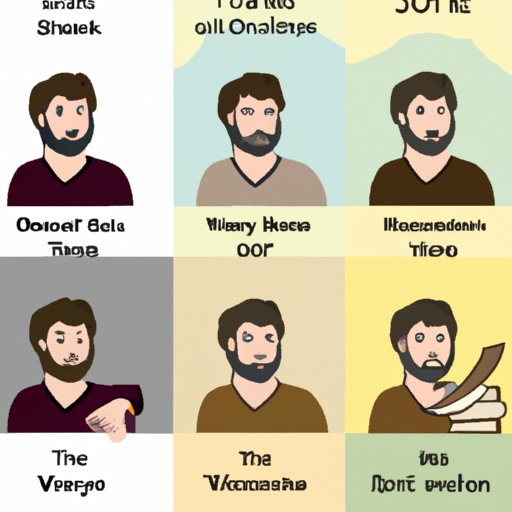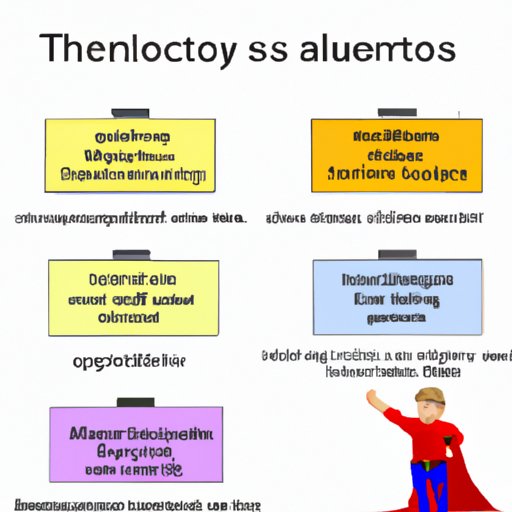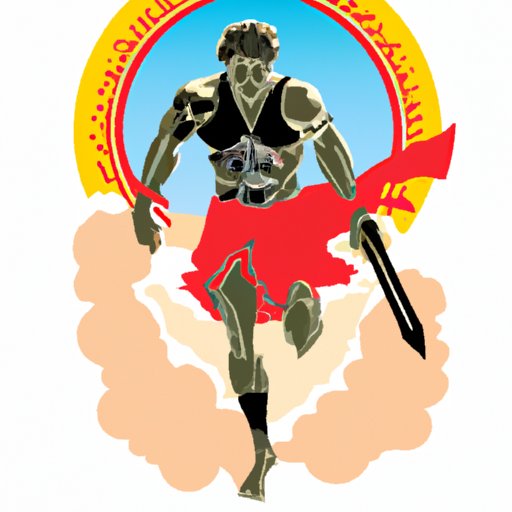Introduction
A hero is one of the most enduring elements of literature, having been used for centuries to tell stories of good triumphing over evil, of courage in the face of adversity, and of justice prevailing in the end. But what exactly is a hero in literature? This article will explore this question in depth, looking at the different types of heroes, their qualities, and their impact on society.

Exploring the Archetypal Hero in Literature
The archetypal hero is a timeless figure that appears in countless works of literature. This type of hero is typically a brave, strong, and noble character who is committed to doing good and fighting evil. The archetypal hero often embarks on a quest or journey, and usually has a special weapon or tool that helps them achieve success. Examples of archetypal heroes include Beowulf from the Old English epic poem, King Arthur from the medieval legend, and Odysseus from Homer’s Odyssey.

The Evolution of the Literary Hero Through Time
Over time, the characteristics of the literary hero have changed and evolved. In the past, heroes were seen as infallible, perfect figures who could do no wrong. However, modern heroes are more complex characters, with flaws and weaknesses that make them more relatable to readers. For example, the heroes of J.R.R. Tolkien’s Lord of the Rings trilogy are far more nuanced than those of the ancient epics, possessing both strengths and weaknesses.

Examining the Different Types of Heroes in Literature
There are many different types of heroes in literature, each with its own unique set of characteristics. The tragic hero is a character who has a fatal flaw or makes a mistake that leads to their downfall. Examples of tragic heroes include Oedipus from Sophocles’ Oedipus Rex and Romeo from Shakespeare’s Romeo and Juliet. The Byronic hero is an archetype based on the writings of Lord Byron, and is typically a brooding, moody, and mysterious character. An example of a Byronic hero is Heathcliff from Emily Brontë’s Wuthering Heights. The antihero is a type of hero who lacks traditional heroic traits such as courage, morality, and honor. Examples of antiheroes include Raskolnikov from Fyodor Dostoevsky’s Crime and Punishment and Holden Caulfield from J.D. Salinger’s Catcher in the Rye. Finally, the epic hero is a larger-than-life figure who is placed in extraordinary circumstances and must use their courage and strength to overcome obstacles. Examples of epic heroes include Achilles from Homer’s Iliad and Gilgamesh from the ancient Mesopotamian epic.
Analyzing the Qualities of a Hero in Literature
An important part of understanding the hero in literature is examining the qualities that define them. Physical strength is often seen as an essential trait of the hero; they must be capable of performing feats of strength in order to succeed in their mission. Courage is also a fundamental characteristic; the hero must be willing to risk their life for the greater good. Self-sacrifice is another key quality of the hero; they must be willing to put their own needs aside in order to help others. Finally, wisdom is necessary for the hero to make the right decisions and guide them on their journey.
The Impact of the Hero in Literature on Society
The hero in literature has had a profound impact on society, influencing our views of morality and justice. Heroes often embody the values of a particular culture, and by reading about them we can gain insight into the social norms of a certain time period. Heroes also serve as role models, inspiring us to be courageous and selfless in difficult situations. They can also provide comfort in dark times, reminding us that goodness and justice will prevail in the end.

Comparing and Contrasting Heroes Across Genres
Heroes can be found in all forms of literature, from drama to poetry to prose. Heroes in drama are often larger-than-life figures who are placed in extreme situations and must use their wits and courage to survive. Heroes in poetry are often romantic figures who embody ideals such as love and beauty. Heroes in prose are typically more realistic characters who are struggling against inner demons or external forces.
Exploring the Role of the Hero in Epic Narratives
The hero plays a crucial role in epic narratives, serving as a symbol of hope in a world filled with darkness and despair. The hero’s journey is a common narrative structure in these stories, in which the hero embarks on a quest and faces numerous challenges before achieving a great victory. Fate often plays a major role in these stories, with the hero’s destiny being predetermined by the gods or other supernatural forces. Finally, the hero is often seen as a symbol of something greater, such as truth or justice.
Conclusion
In conclusion, the hero is one of the most important elements of literature, appearing in countless works throughout history. Heroes come in many different forms and possess a variety of qualities, from physical strength to courage to wisdom. They have had a profound impact on society, influencing our views of morality and justice. Finally, their role in epic narratives serves as a reminder of the power of hope in even the darkest of times.
(Note: Is this article not meeting your expectations? Do you have knowledge or insights to share? Unlock new opportunities and expand your reach by joining our authors team. Click Registration to join us and share your expertise with our readers.)
